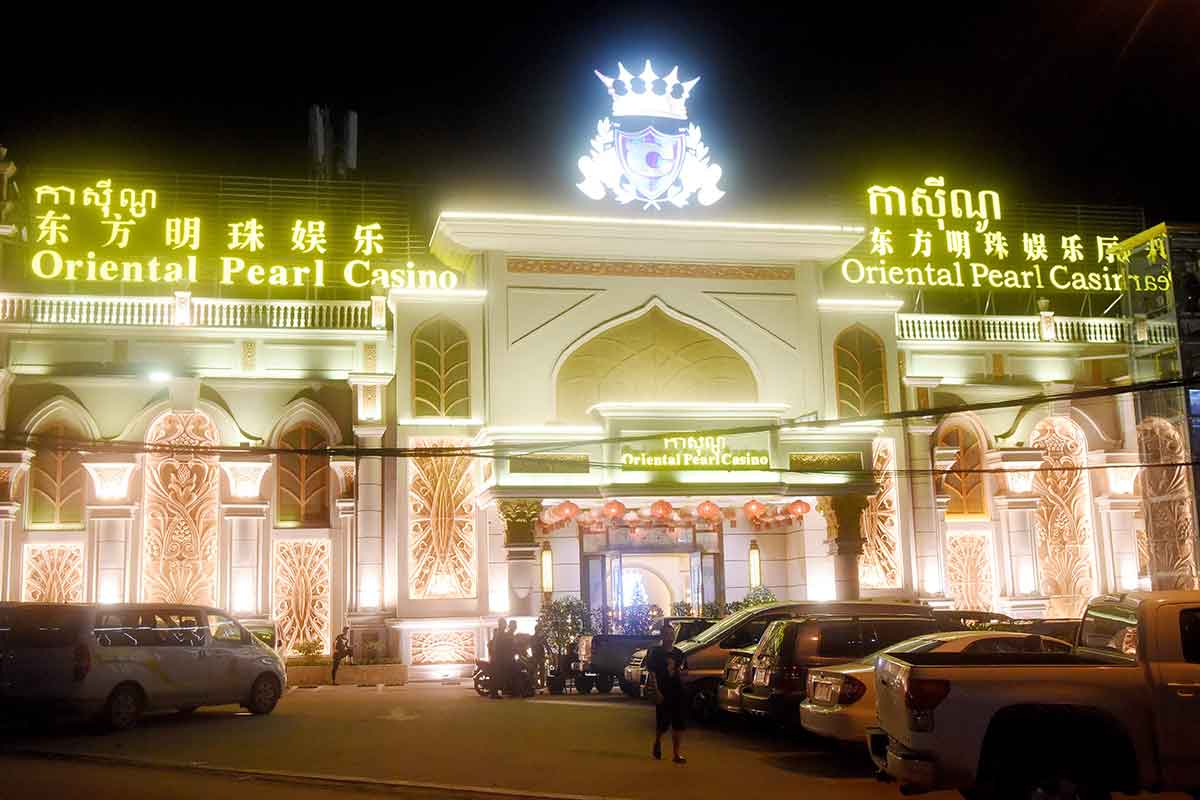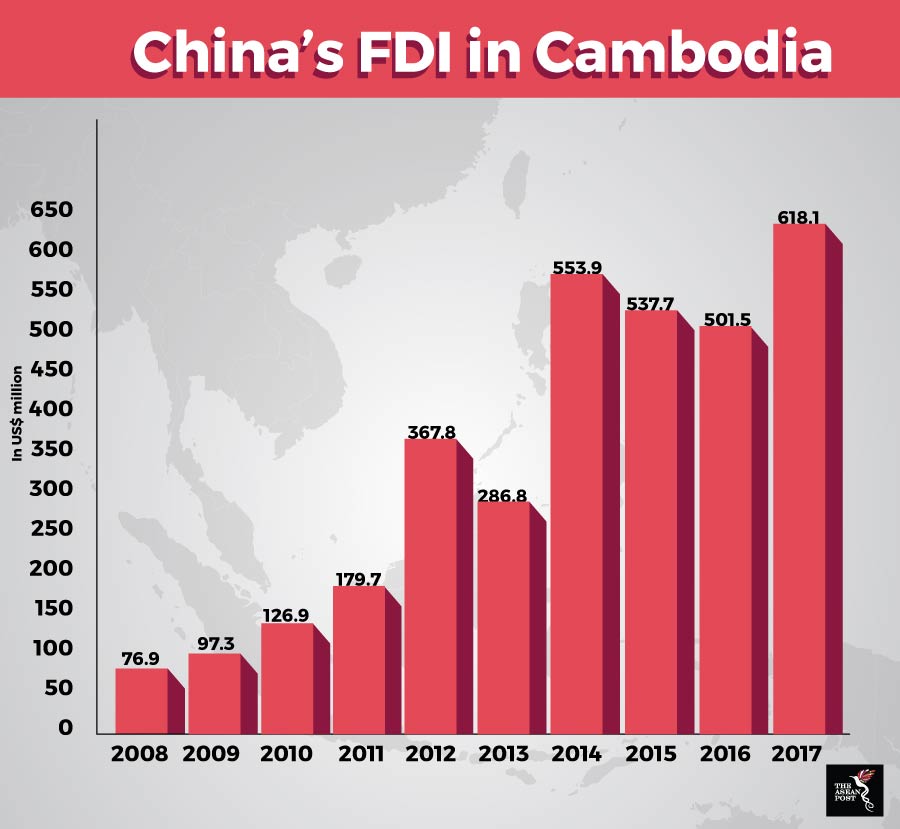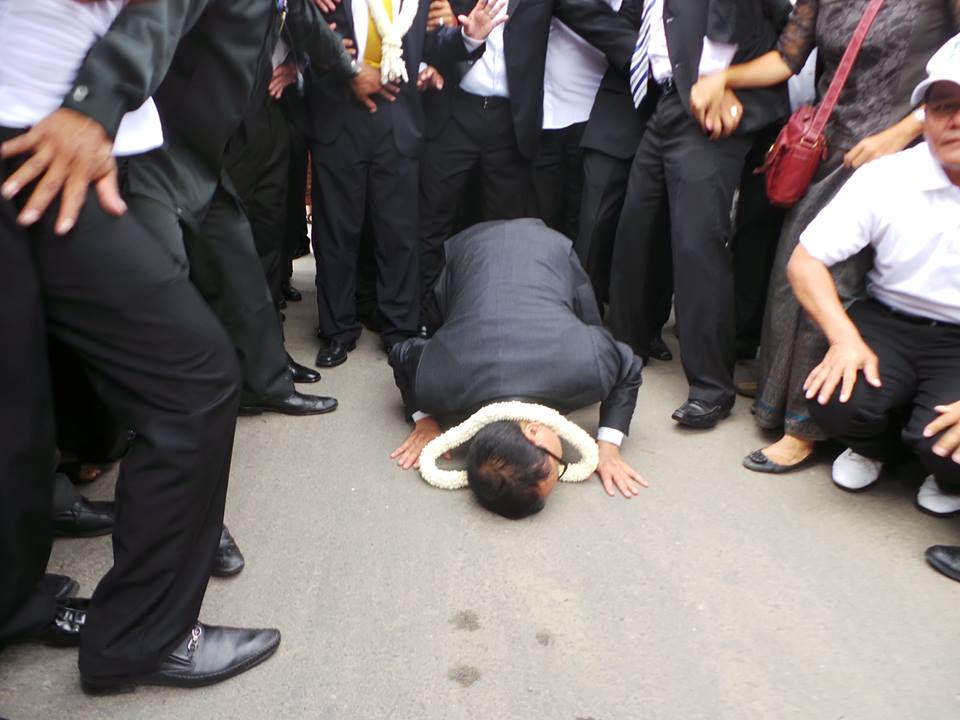How China changed Sihanoukville
តាមអត្ថបទនេះ គម្រោងមហិច្ចិតាគំនិតផ្តួចផ្តើមផ្លូវសូត្រ(BRI)របស់ចិន កម្ចីគឺមានលក្ខណៈជាកិច្ចសន្យាគ្មានការស្មោះត្រង់(opaque contracts) អត្រាការប្រាក់ខ្ពស់ហួសហេតុ(exorbitant interest rates) ការផ្តល់កម្ចីដោយយកប្រៀបខ្លាំងលើម្ចាស់បំណុល(predatory loan practices) និងការឃុបឃិតគ្នាដោយអំពើពុករលួយ(corrupt deals)។ ជាលទ្ធផល ប្រទេសក្រីក្រជាច្រើននិងទន់ខ្សោយខាងស្ថាប័នល្អ(weak states and weak governance countries) មានបំណុលវ័ណកររើខ្លួនមិនរួមរហូតយល់ព្រមធ្វើសម្បទាលក់ឬប្រគល់ដីធ្លីក៏ដូចជាសម្បត្តិដាក់ចំណាំប្រកាន់ទៅអោយចិនទាំងដុលតែម្តង។ ចំណែកទេសចរណ៌និងវិនិយោគិនចិនវិញ និយមប្រើប្រាស់តែក្រុមហ៊ុនចិន សម្ភារៈចិន និងកម្មករចិន ដើម្បីទាក់ទាញយកលុយនោះទៅផ្តល់ផលប្រយោជន៌អោយចិនវិញ ទុកអោយប្រជាជនអ្នកមូលដ្ឋាននិងម្ចាស់ប្រទេសត្រដររស់តាមសម្មាអាជីវោខ្វះខាតដដែល។ គ្រាន់តែដើម៦ខែនៃឆ្នាំ២០១៨នេះ ជនប្រព្រឹត្តបទអាជ្ញាកម្មចិនដែលប៉ូលីសខ្មែរចាប់បានមានដល់៦៨ភាគរយនៃការចាប់សរុបទាំងអស់ទូទាំងប្រទេស។
Op-Ed: The ASEAN Post Team, 13 April 2019

Sihanoukville used to be a sleepy coastal town in south Cambodia. Its beaches were known for their quiet, cosy – albeit a little seedy – atmosphere that attracted mostly families, individual travellers and backpackers. Aside from the goings-on of the tourists and those connected with the country’s sole deep-water port, nothing much had changed over the years. That was until the Chinese investment flooded in as a result of China’s Belt and Road Initiative (BRI).
Cambodians Lose, As China Tourists And Cash Pour In
Fast forward to 2019 and the once-tranquil city has been transformed beyond recognition. Now an enclave of Chinese investment, Sihanoukville is peppered with Chinese-run, operated and patronised hotels, apartments towers, restaurants and gambling dens. The area is dotted with Chinatowns, festooned with neon signs in Mandarin which have taken the place of Khmer and English language signs.
The magnitude and make-up of its tourists has also changed with the new influx. Tourism increased more than 700 percent between 2012 to 2017, with Chinese tourists accounting for one-third of the 6.2 million visitors Cambodia received last year. Officials estimate that Chinese nationals make up some 90 percent of the expatriate population in Sihanoukville. A number of the long-term Western tourists living in the city have either been pushed or kicked out to make way for better paying Chinese. Some have moved out to avoid the area because of the loss of tranquillity.
Within the BRI framework, Sihanoukville is known as the first port of call on China’s massive infrastructure programme. The area, previously known as Kampong Som before it was renamed after former king Norodom Sihanouk, received US$4.2 billion in Chinese investment for power plants and offshore oil operations.
Beyond Sihanoukville, with the strong support of Prime Minister Hun Sen, the BRI has spread Chinese investment further inland into the kingdom. Cambodia is a key beneficiary of infrastructure projects under China’s trillion-dollar BRI, and this includes financing for new highways, national roads, power plants, airports, and special economic zones (SEZs) dedicated to technology innovations. China has also bequeathed US$100 million in aid to help modernise Cambodia’s military.

Chinese investment and related discontent
With the massive influx of Chinese investments, loans and aid, many have cautioned Cambodia on China’s debt-trap diplomacy. The Chinese loan model, often characterised by opaque contracts, exorbitant interest rates, predatory loan practices, and corrupt deals, has left smaller countries further debt ridden and in danger of losing their sovereignty.
The China Road and Bridge started construction of the country’s first highway last month, a US$2 billion four-lane road linking Sihanoukville and Phnom Penh. The growing dependence on China has led Hun Sen to insist that Cambodia is not a colony of China – going on to rubbish rumours that China plans to set up a naval base in the South China Sea, a strategic area which has long been an issue of contention between China and some ASEAN member nations.
Continue reading
